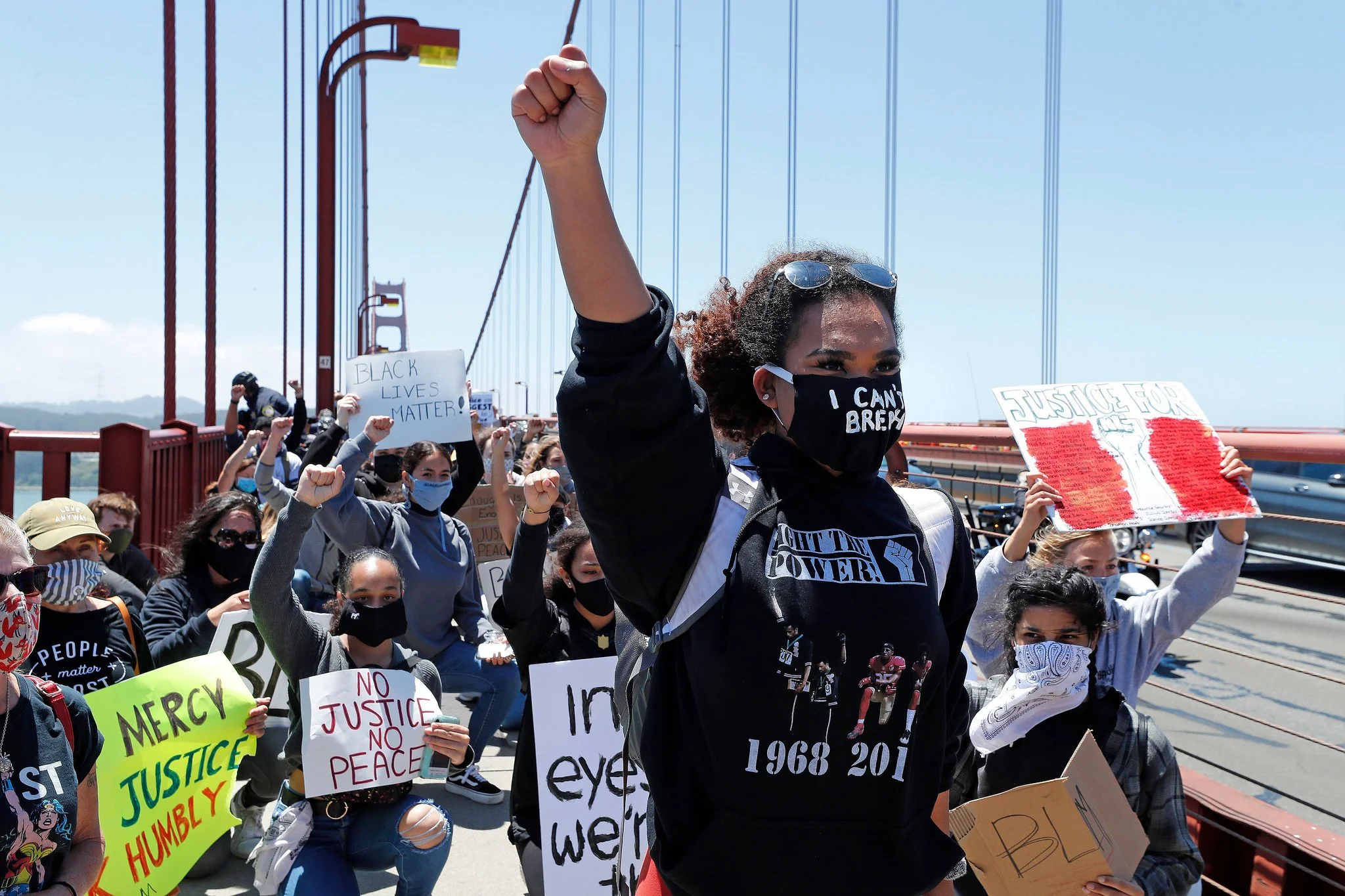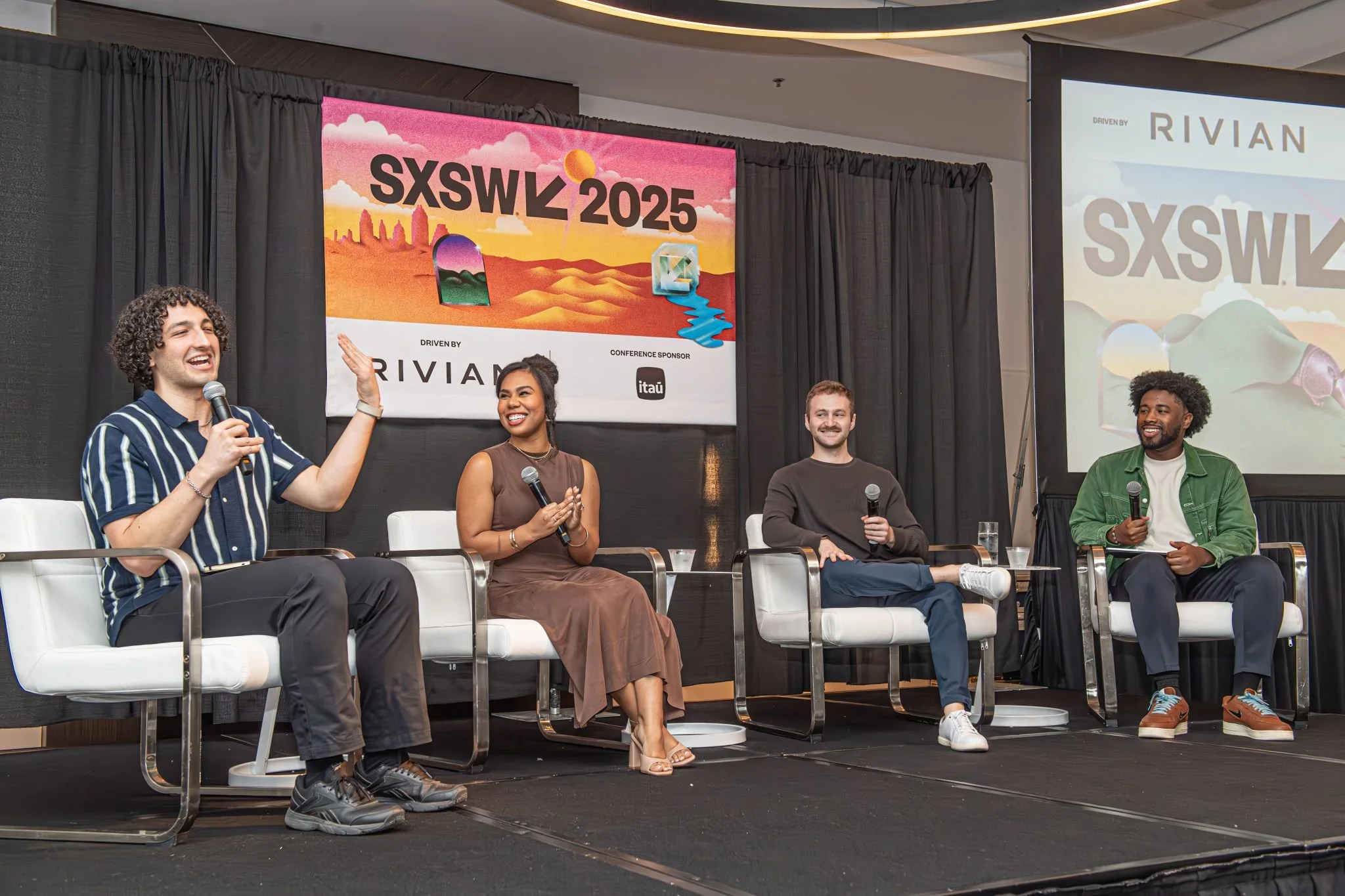Tiana Day leading George Floyd protest (All rights reserved to owner)
Tiana Day is a 22-year-old activist and founder of Youth Advocates for Change, a nonprofit amplifying youth voices through creative arts and social justice. At 17, she led over 50,000 people across the Golden Gate Bridge in a Black Lives Matter march, igniting her passion for youth-led activism. Since then, Tiana has raised over $30,000 in scholarships for Black students and expanded her organization nationwide.
At 17 you led your first protest and shortly after establishing your nonprofit “Youth Advocates for Change”, you shared the backlash of speaking up and using your voice. Share how you navigated those conditions while still having enough courage to continue standing for what you believe in.
TD: I think the biggest motivating factor was literally feeling like there was no one else who was going to step up and and take action. It was a time in 2020 where we're in the middle of pandemic, George Floyd had just been murdered. It's broadcasted all over the news and on social media and it literally felt like in my predominantly white neighborhood, who else is gonna speak on behalf of the lived experiences that black kids are having in these areas where none of us can speak? Where our voices are historically silenced and systemically silenced as well. So I think having faith that me speaking up may be the way that this doesn't happen again.
I have two little sisters, so that is a big part of why I do what I do. Knowing that me being a leader and stepping into my power and using my voice is going to liberate them of a lot of the similar experiences that I had to endure. Just based on where we lived, what we look like and the circumstances that we don't get to choose. Made me feel like this is something that I have to do. So regardless of who is gonna come against me or who is going to try and tell me that I shouldn't be doing it or egg my house or try and bully me or say things crazy on Internet. It didn't matter because at the end of the day knowing it's for a greater cause, it's not just about myself, but it's about my sisters as well, and the next generation of kids who are gonna have to go through these schools and these programs and endure the same situations that I would if I didn't speak up.
Tianna speaks on the 2025 Gen Z and the Gerontocracy: Reclaiming America’s Future hosted by Made by Us at SXSW. (Credit: SXSW)
You mentioned something Gen Z capitalizes on in a Elevate Prize interview, ”In order to be a leader, to be able to be someone who steps up and says, I don’t see that change so I’m going to be that change.” For a young adult looking to make a difference where they are, where can they start?
TD: I think the best place to start is taking a look at your own lived experiences. I don't think that's a way that most people would approach the conversation, but I always like to take it here because there's a lot of performative activism out here in the world. I think that is because people are trying to take on the experiences of others because it seems trendy or cool, but we can actually find so much liberation through looking at our own experiences and using critical consciousness to learn more about ourselves and our passions and our whys. I think trauma can turn into triumph and pain can turn into purpose if you are willing to be vulnerable. The best way to get involved in anything is before you start thinking you have this savior complex and you can save the world, save everyone and help everybody. Is by asking yourself, “How are you helping yourself and tending to your own needs?”
“Knowing your family history can be such a powerful tool to learning what your purpose is because we are just the next generation of what they are. “
- Tiana Day
Your dad told you that activism runs in your blood—your grandfather was part of the Black Panthers. How has your families lived experience metamorphosed into your life and supported the type of action you take?
TD: Legacy is huge for me, it's just a big part of who I am. I didn't find out until I started organizing that my father was organizing during the Rodney King movement when he was my age at the time between 16-17, which is when I started my organization too. To know my grandfather around the same age was a founding member of the Black Panther Party in Oakland. I believe that there are generational blessings and generational curses that are on bloodlines. My grandfather had a purpose, his purpose was to be a part of this Black Panther Party and work on civil rights, create all of these opportunities for black folk and then his purpose was recycled because my dad stepped into that. Then when my dad hit a ceiling and he stopped pushing, it got recycled to me because there were still unfinished business to get done. Knowing your family history can be such a powerful tool to learning what your purpose is because we are just the next generation of what they are. Looking at my life from a perspective of whatever I'm doing, I'm building for my kids and their kids and their kids and their kids, it all gives me a lot more purpose.
Tiana Day in all her essence (Rights reserved to owner)
You're 22 now, how has “your why” developed and what is it today?
TD: I think my why is really knowing that the way I show up for myself is the way that I show up for others too, and people can feel that. People can feel that authenticity, that rawness, that realness, but it takes a lot of vulnerability. And it takes a lot of honesty that you have to have with yourself and with the people that you love in order to cultivate that legacy again.
What role does representation play in helping the next generation believe that their dreams and aspirations are truly possible?
TD: I just think if not you, then who? We have to be in the rooms so we can advocate for the people who aren't in the rooms. I'm usually the youngest, the only black woman, the only woman, the most outspoken, the shortest. I'm only five foot, but I have this big personality. People look at me like, “Who are you?” But I always think in terms of , “There are thousands of other me’s waiting to get in this door.” So every time I'm thinking of the conversation of representation, I’m thinking of who isn't in this room right now? How can I represent all of these multiple perspectives at once? How do I make space for all of the parts of me? All of the intersectional identities and personalities? How can they all be here together? Because of me showing my authenticity and being raw and being real and being honest, that brings someone else into the room. It's a domino effect of what I've seen and when people start getting comfortable with me, I can invite more young people in the room.
Want to hear more amazing stories like this? Check out our “More of Us” series! If you want to connect with Tiana and support the work she is doing, follow her on social at @tiana.day or continue sharing her mission.



